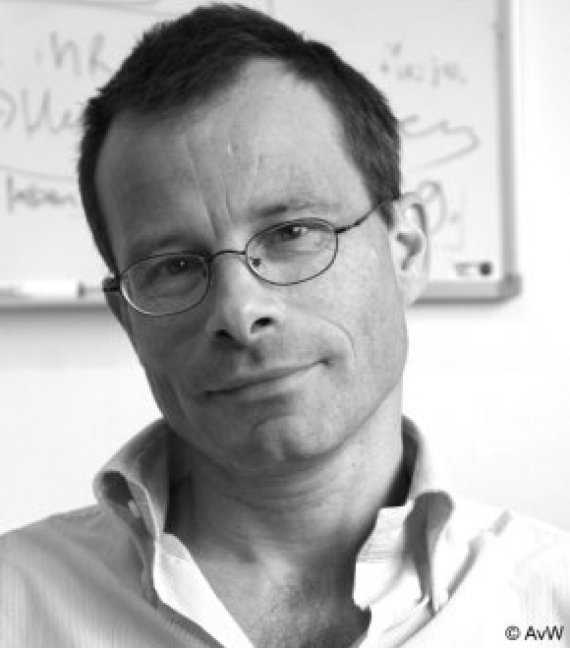After twenty years as a professor in Utrecht, the much revered Ben Scheres, who has many top publications to his name on the development of plants, is ready for a change. ‘I could have moved to the United States, for example, but I don’t like the fast-paced American research culture.’ He approached rector Martin Kropff for a professorship in Wageningen. Wageningen is familiar ground for the 52-year-old Scheres because he studied here and got his PhD under molecular biologist Ton Bisseling. They are now neighbours in Radix. ‘Ton will retire in a few years’ time and there are plans to merge the groups then.’ Scheres has brought along a group of twenty researchers to Wageningen: four permanent and 16 temporary. ‘I had 35 colleagues one and a half years ago, but I have to make a big cut as we can only accommodate 20 here. But I’m fine with this. I have a smaller group with high calibre people.’ The move to Wageningen is an obvious step, says Scheres. ‘The current trend is for Dutch biology faculties to specialize. Plant research is being concentrated in Wageningen. With Utrecht heading towards biomedical research, my research will be relegated to the periphery there.’ Moreover, Scheres wants to do things differently. ‘I have been doing much work with animal development biologists in the past few years because of the progress they are making in stem cell discoveries. I now see a lot of development in the plant world.’ Among those Scheres intends to work with are Bisseling, cell biologist Marcel Janson, geneticist Gerco Angenent and plant physiologist Harro Bouwmeester. ‘Being right in the middle of the plant sciences will enable me to share my ideas more easily within a bigger whole.’ Like his new neighbours, Scheres is doing a lot of research into the model plant Arabidopsis in order to understand the architecture of plants. Is this model crop still necessary now that the DNA sequences of useful crops have been charted? ‘Arabidopsis remains necessary in concept to understand how the networks of genes, proteins and metabolites work in plants. The actual information about the functions of genes, the system biology, cannot be derived from loads of genetic data, so you need models for this.’ Although his research is purely fundamental, Scheres is curious if breeding companies want to cooperate with him. His chair group does not yet have a name. ‘We might call ourselves Plant Development Biology, but discussions are still going on. I hope to get this name soon so that I can get our website in the air.’ What does the new group think about Wageningen campus? ‘My colleagues are full of praise for the Chinese food in the Forum canteen; we don’t have that in Utrecht.’
‘Plant research concentrated in Wageningen’
Development biologist Ben Scheres moved from Utrecht to Wageningen in September. A logical choice, he says, because plant research is concentrated in Wageningen.

